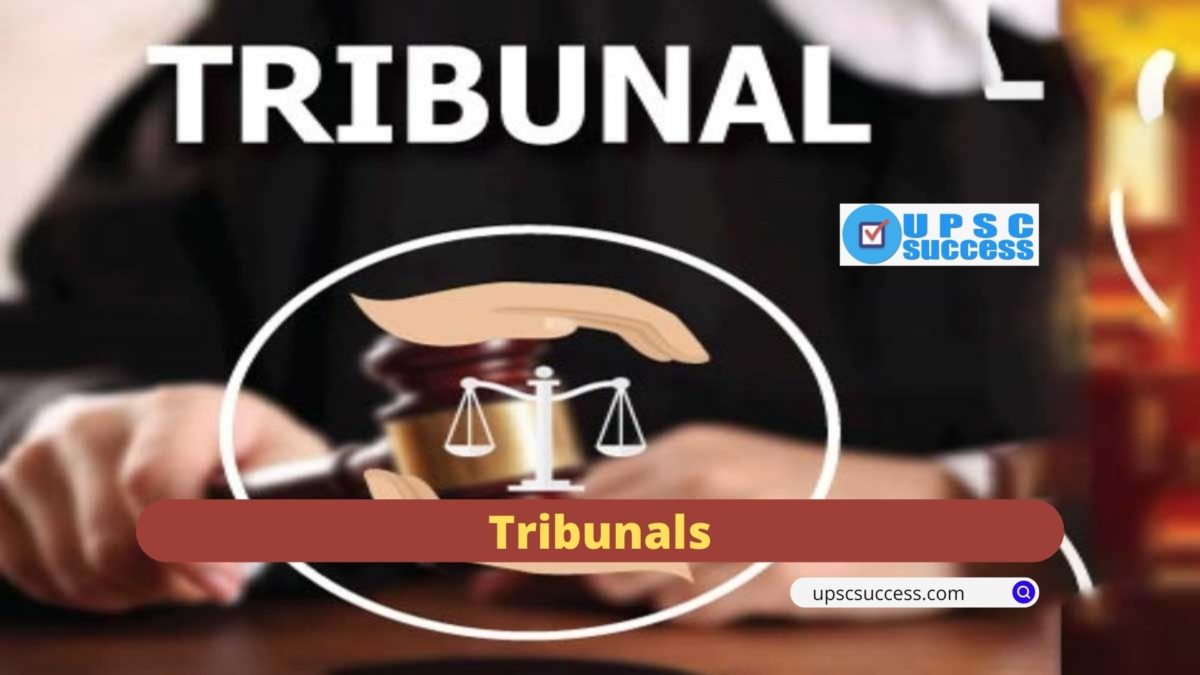Contents
The original Constitution did not contain provisions with respect to tribunals.
The 42nd Amendment Act of 1976 added a new Part XIV-A. This part is entitled as ‘Tribunals’ and consists of only two Articles
- Article 323A: dealing with administrative tribunals
- Article 323B: dealing with tribunals for other matters.
Administrative Tribunals
Article 323A empowers the Parliament to provide for the establishment of administrative tribunals
It enables the Parliament to take out the disputes relating to service matters from the civil courts and the high courts and place it before the administrative tribunals.
In pursuance of Article 323A, the Parliament has passed the Administrative Tribunals Act in 1985.
The act authorises the Central government to establish
- Central administrative tribunal
- State administrative tribunals
This act opened a new chapter in the sphere of providing speedy and inexpensive justice to public servants
Central Administrative Tribunal (CAT)
The Central Administrative Tribunal (CAT) was set up in 1985. It’s principal bench in Delhi and additional benches in different states.
At present, it has 17 regular benches, 15 of which operate at the principal seats of high courts and the remaining two at Jaipur and Lucknow. These benches also hold circuit sittings at other seats of high courts.
The CAT has original jurisdiction in recruitment and all service matters of public servants covered by it. Its jurisdiction extends to
- All-India services
- Central civil services
- Civil posts under the Centre
- Civilian employees of defense services.
Its jurisdiction doesn’t cover
- Members of the defense forces
- Officers and servants of the Supreme Court
- Secretarial staff of the Parliament
The CAT is a multi-member body consisting of a chairman and members. Earlier, the CAT consisted of a Chairman, Vice-Chairmen and members.
In 2006, the members have been given the status of judges of High Courts by the amendment in the act
Chairman and members are drawn from judicial or administrative streams
They are appointed by the president.
They hold office for a term of 5 years or until age of 65 years, for chairman or 62 years for members, whichever is earlier.
The appointment of Members in CAT is made on the basis of recommendations of a high powered selection committee chaired by a Sitting Judge of Supreme Court who is nominated by the Chief Justice of India.
After obtaining the concurrence of Chief Justice of India, appointments are made with the approval of Appointments Committee of the Cabinet (ACC).
The CAT is not bound by the procedure laid down in the Civil Procedure Code of 1908. It is guided by the principles of natural justice. These principles keep the CAT flexible in approach.
Only a nominal fee of 50 is to be paid by the applicant. The applicant may appear either in person or through a lawyer.
Originally, appeals against the orders of the CAT could be made only in the Supreme Court and not in the high courts.
In the Chandra Kumar case (1997), the Supreme Court declared this restriction on the jurisdiction of the high courts as unconstitutional. It laid down that appeals against the orders of the CAT shall lie before the division bench of the concerned high court.
Consequently, now it is not possible for an aggrieved public servant to approach the Supreme Court directly against an order of the CAT, without first going to the concerned high court.
State Administrative Tribunals
The Administrative Tribunals Act of 1985 empowers the Central government to establish the State Administrative Tribunals (SATs) at the specific request of the concerned state governments.
The SATs exercise original jurisdiction in relation to recruitment and all service matters of state government employees.
The chairman and members of the SATs are appointed by the president after consultation with the governor of the state
The act also makes a provision for setting up of joint administrative tribunal (JAT) for two or more states. A JAT exercises all the jurisdiction and powers exercisable by the administrative tribunals for such states. The chairman and members of a JAT are appointed by the president after consultation with the governors of the concerned states.
Tribunals for other matters
Under Article 323 B, the Parliament and the state legislatures are authorised to establish tribunals for other matters
- Taxation
- Foreign exchange, import and export
- Industrial and labour
- Land reforms
- Ceiling on urban property
- Elections to Parliament and state legislatures
- Food stuffs
- Rent and tenancy rights

